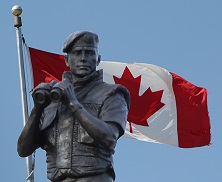True and Fascinating Canadian History

A Mystery of the Mounties:
And Two-Tier Troubles
by J. J. Healy
Life, some say, is already complicated, but cadets who join the RCMP today may not be fully informed about the legal entanglements awaiting them especially if they were charged with a criminal offence; all RCMP members face a two-tier discipline system; if a criminal charge arises, the offending police officer must first appear in criminal court and followed afterwards by an internal Code of Conduct Hearing.
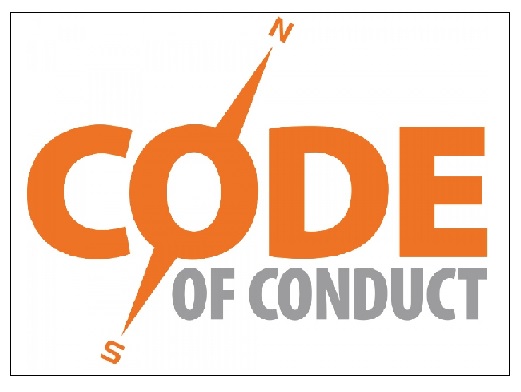
The two-tier discipline system is evident from the early days of the North West Mounted Police (NWMP). In 1889, Reg.#2074, Constable James McAuley was charged for theft of $35.00. He was dismissed from the NWMP after appearing in Service Court, and in criminal court McAuley was handed two years imprisonment. In 1890, Reg.#2254, James McLean was charged for theft of $1500. He too was dismissed from the Force, and in criminal court he was handed five years in prison. To be sure, the two-tier system for the RCMP was deemed as an effective method to maintain rigid discipline especially in cases where one of its members committed a criminal offence.
The two-tier system has continued all these years within the walls of the RCMP, but in 1953 Reg.#16376, Corporal John Robert White challenged the actual validity of RCMP Service Court proceedings. Interestingly, Corporal White was not charged with a criminal offence so there was no need for him to appear in criminal court, there was the sole requirement for him to answer to charges in Service Court. His unusual challenge up to the Supreme Court was a direct affront to the bare legitimacy of the RCMP to conduct its own in-house Service Court, this sort of argument had not been raised prior to Corporal White’s legal action. One can well imagine that every eye within the RCMP membership was waiting for the ruling eventually released by Canada’s Supreme Court. As it turned out, the Supreme Court's final ruling was of absolutely no benefit to Corporal White, nor did it give him any relief from the sanctions which had been imposed against him earlier by Superintendent Archer in Service Court.
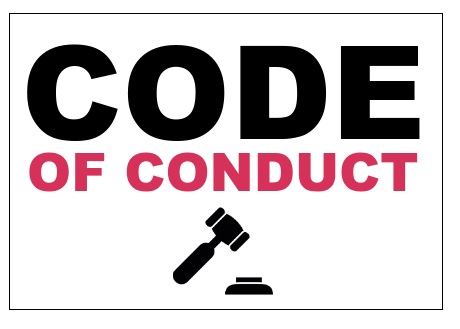
As already mentioned, it was not necessary for Corporal White to answer to criminal court. His principle complaint was to question the validity of Service Court. The charges against Constable White and the Supreme Court’s reply are outlined in "The Mystery of the Mounties; And Two-Tier Trouble." The case is fascinating because it set precedence, and it will surely be of high interest to any police officer who might question the validity of Service Court. The background of The Queen and Archer v. White, [1956] S.C.R. 154 follows here.
In November 1952, Vancouver, BC Corporal J. R. White was charged with five Service Court offences; 1) he conducted himself in a manner unbecoming a member of the Force by condoning the consumption of intoxicating liquor by a female juvenile, 2) by occupying a room in a hotel with such a person, 3) by associating with a female of questionable character, 4) by counselling another constable, his junior in rank, to register at the hotel under an assumed name, and 5) by being intoxicated, however slightly, contrary to the RCMP Act.
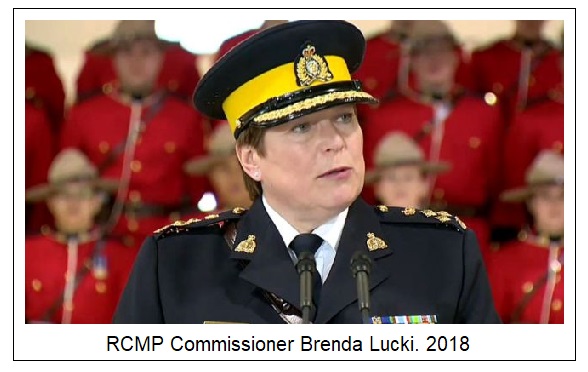
In early 1953, the Service Court charges were heard by Superintendent G. J. Archer and Corporal White was convicted of all charges except that of counselling his junior to do the act mentioned. Superintendent Archer imposed a penalty of $100 and a reduction in rank from corporal to constable.
As an aside, Superintendent Archer also recommended, though not as part of the formal punishment, that Constable White be dismissed from the Force. The Commissioner reduced the fine to $50, and he accepted Superintendent Archer’s recommendation -- subsequently, Constable White was dismissed from the Force.
Not satisfied with the results of Service Court, former member White sought a judicial review of the sanctions imposed by Superintendent Archer. After winding its way through BC’s Supreme Court, and the Court of Appeal, the case finally reached the Supreme Court of Canada in 1956. Several points of importance can be noted from the Supreme Court’s decision.
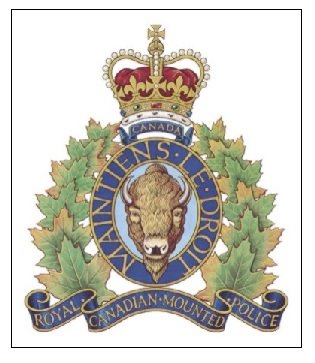
In a nutshell, the issue facing the Court was whether or not Service Court was the legitimate launch pad to process discipline proceedings under the RCMP Act. On this point, the Supreme Court spoke in the affirmative, yes, the Court said, “Parliament has specified the punishable breaches of discipline and has equipped the Force with its own courts for dealing with them and it needs no amplification to demonstrate the object of that investment. Such a code is prima facie to be looked upon as being the exclusive means by which this particular purpose is to be attained.” In other words, Service Court was a legitimate body and it could stand firmly and squarely on its own two feet.
As well, the Court pronounced the legitimate autonomy of internal tribunals such as the RCMP’s Service Court, it said that, “ … internal management is not to be interfered with by any superior court in exercise of its long established supervisory jurisdiction over inferior tribunals.” This was the clearest endorsement yet from the Supreme Court that Service Court held legitimacy as well as weight to carry out its function in the sphere of RCMP conduct, discipline and good order.
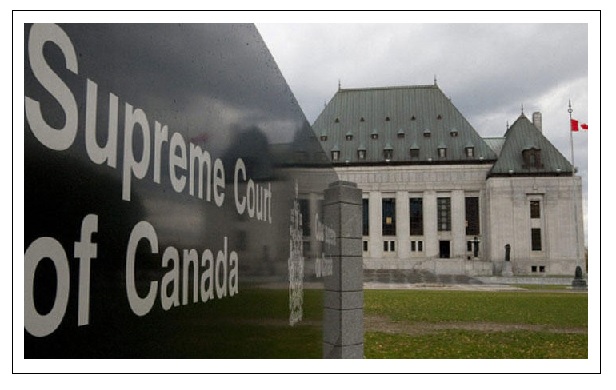
Next, the Court addressed the specific judicial role of Superintendent Archer in Service Court, and on this point the Supreme Court said the RCMP Act, “ … directs and authorizes a superintendent in a summary way to "investigate" the charge and if proved "on oath to his satisfaction" to convict.”
On a more broad level, the Court addressed the responsibility of all RCMP Officers. On this point the Court said, “Like an army group, the [RCMP] rank and file are in close association with officers; there is a daily interchange of orders, instructions and reports, and the general conduct and performance of the men comes under continuous and close observation. All [RCMP Officers] are in duty bound to see that in every respect the standards of efficiency and obedience are preserved, and this is the special obligation of officers.” The court left no doubt as to the duty and responsibility of Officers in the RCMP to manage its discipline.
Furthermore, the Supreme Court was expressly generous when speaking about the ability of the RCMP to manage itself, the Court said, “Most of the offences enumerated in [the RCMP Act] call for judgment based on long experience in the service. The daily round of duty of the superintendent and other officers and the knowledge and information of the experience and vicissitudes of the Force inevitably reaching them were known to Parliament which gave to them the power of disciplinary adjudication; and if the circumstances objected to here were to be held to invalidate such investigations the intendment of the statute would, in large degree, be frustrated. The Commissioner and his staff preserve and create the standards and they are best able to appreciate departures from them.” The Court inferred that no one knew the rules and regulations of the RCMP better than its own Officers, and they themselves ought therefore to be the ones to enforce the RCMP Act.
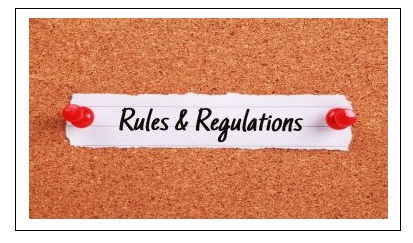
Stepping up to the highest level of the Force, the Court also recognized the authority and the role of the RCMP Commissioner, the Court said, “any member of the Force other than a Commissioned Officer, feeling himself aggrieved by a recommendation made for his dismissal or by a conviction and punishment awarded him under the provisions of the Act, may appeal to the Commissioner in writing. In this case, White availed himself of this privilege and, in the result, the Commissioner reduced the penalty to $50. He, however, exercising the powers vested in him by the Act, dismissed the respondent from the Force.” In the end, the Court recognized that the RCMP Commissioner had the final word. After his conviction in Service Court, Corporal White had intended to derail any further proceedings by the RCMP's in-house discipline system, but that is not what the Supreme Court ruling said.
The entire ruling from the Supreme Court can be summed in a few points and by using their ideas almost word for word...
First, discipline within the RCMP should be maintained in the same manner as had been found necessary in Military Forces,
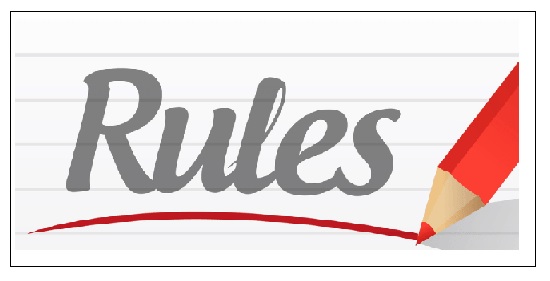
Second, the RCMP Act authorizes a Superintendent or other Commissioned Officer, to investigate the said charge and, if proved on oath to his satisfaction, shall thereof convict the offender,
Third, the proceedings authorized are judicial and not executive or administrative character, and the officer conducting the proceedings is obligated to act judicially,
Fourth, the RCMP Act and the regulations constitute a code of law regulating the recruitment, administration and discipline of the Force. The necessity for maintaining high standards of conduct and of discipline in the Royal Canadian Mounted Police is just as great as it is for the armed forces, and in this respect there is no distinction in principle between the two bodies,
Fifth, Commanding Officers, in hearing charges involving breaches of discipline, should act in a judicial manner. In the Royal Canadian Mounted Police, as in the Army, Navy and Air Force, under the regulations and in the interest of the prisoner, Orderly Room proceedings involving breaches of discipline may and often do follow the forms of law. Nevertheless in such proceedings, in my view, a Commanding Officer is acting not as a court or judge but as an officer administering discipline.
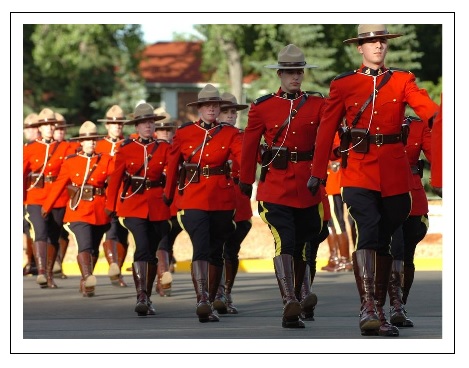
The definitive ruling from the Supreme Court in support of the RCMP to manage its own discipline system likely did not come as a total surprise to former member Corporal White. He was not charged in criminal court, it was his unprofessional conduct which was his own undoing. In that respect, the Supreme Court’s ruling was unequivocal. The RCMP has full legitimate authority to manage it’s own internal discipline system.
There's a lesson here for all police officers. If one is charged with a criminal offence, every police officer will be processed first though the criminal courts. This action follows the widely accepted and long standing legal notion of the rule of law. In addition to the criminal process, however, every police officer must also appear before an internal discipline tribunal. In the RCMP, the internal discipline process is a Code of Conduct Hearing.
When one considers the Oath of Office in which every police officer commits to do the right thing, it is a baffling mystery why any police officer would violate community expectations and then find themselves facing charges in a Code of Conduct Hearing. Service Court by any other name is a black mark on a police officer's service record.
The job of all police officers is to avoid criminal charges, and to give any code of discipline hearing a wide berth. For police officers, the two-tier discipline system is a whole pack of trouble.
The end.
Reporting from the Fort,
J. J. Healy,
April 23, 2018
Supreme Court of Canada. The Queen and Archer v. White, [1956] S.C.R. 154

